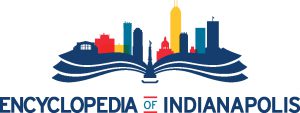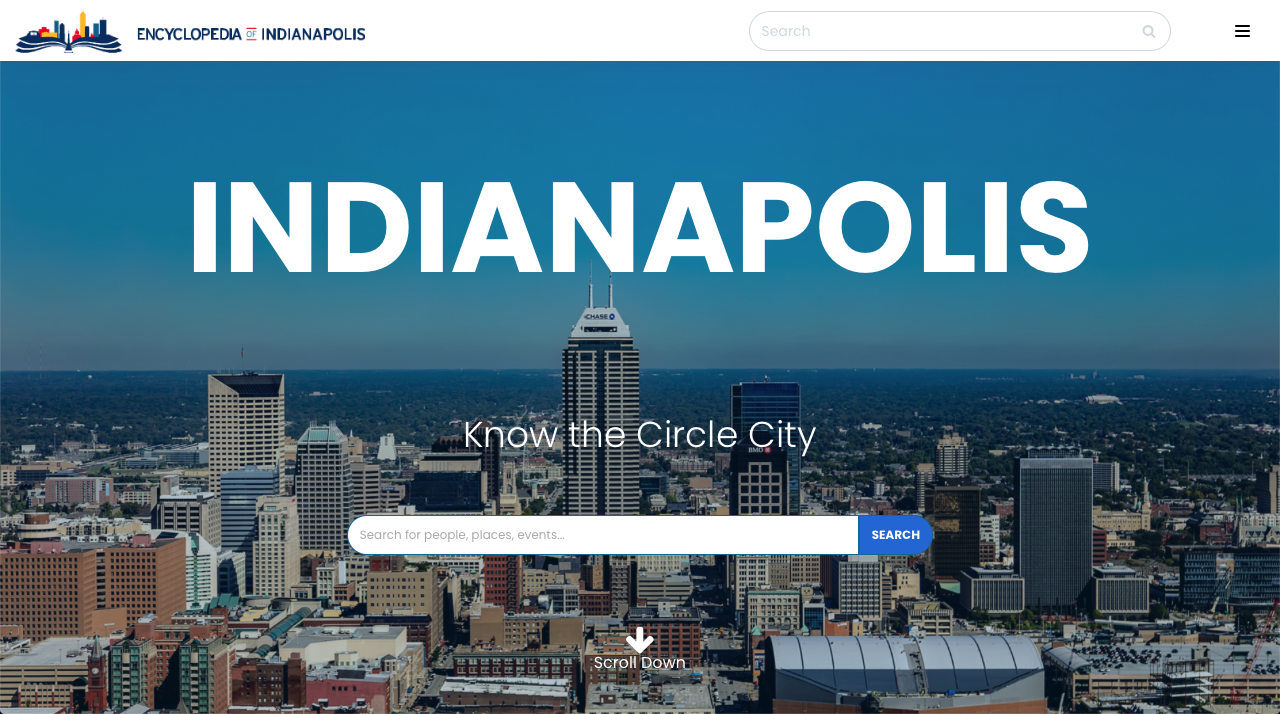Digital Encyclopedia of Indianapolis
 In 1994, The Polis Center published a 1,600 page print encyclopedia that provided a comprehensive social, cultural, economic, historical, political, and physical description of Indianapolis. The work—the standard reference volume for information about Indianapolis—was hailed as a national mode for urban encyclopedias. The book is now 25 years out of date.
In 1994, The Polis Center published a 1,600 page print encyclopedia that provided a comprehensive social, cultural, economic, historical, political, and physical description of Indianapolis. The work—the standard reference volume for information about Indianapolis—was hailed as a national mode for urban encyclopedias. The book is now 25 years out of date.
How has Indianapolis and Central Indiana changed over the past twenty-five years? How has the city developed over the two centuries since its founding? What important events, people, and organizations have shaped the city, past and present? What do residents need to know about Indianapolis to contribute to the vibrant place-making that characterizes Greater Indianapolis today?
A web-based, free-access Encyclopedia of Indianapolis captures this information and more. Launched Nov. 18, 2021, this innovative platform is the major source of information on the city and region.
Designated a legacy project of the Indianapolis Bicentennial Commission, the digital Encyclopedia of Indianapolis is the hub of an innovative knowledge environment, linking resources from multiple organizations across desktop and mobile devices. It is highly visual, interactive, and dynamic. Key elements include updating and enhancing the 1600 entries of the 1994 Encyclopedia of Indianapolis, adding new content to reflect developments since 1994, and implementing a document-and-image-rich interactive timeline.
It also allows citizens and organizations to add materials, such as special timelines or histories, as well as suggest entries and offer corrections and comments. Each neighborhood in the city has its own entry, thereby giving residents information about the places where they live.
Users can explore and discover information by event, name, date, place, keywords, or topic. The platform includes multi-media material including text, audio, video, images, and story maps, with the ability to access content from other digital collections housed elsewhere.
Initial timelines include City of Indianapolis, Black Lives Matter, COVID-19, and IUPUI. Initial special features include Indiana Avenue, the Evolution of the Mile Square, and the Indiana World War Memorial. An Atlas encompasses topics like Natural Features, Climate and Environment, Population, Utilities and Resources, Land Use, Economy, and Philanthropy with other topics scheduled for release in coming months.
Ownership is vested in The Indianapolis Public Library. Collaborating partners include the city’s major heritage and cultural organizations: Indiana Historical Society, Center for Civic Leadership and Indianapolis Mayoral Archives (University of Indianapolis), Indiana Landmarks, IUPUI University Library, Butler University Archives, Indiana State Library and Historical Bureau, Indiana Archives and Records Administration, and Indiana Humanities.
“This new platform will be of interest to every person who wants to know about Indianapolis and Central Indiana,” said David J. Bodenhamer, executive director of The Polis Center at IUPUI and the encyclopedia’s editor-in-chief. “In order to be productive citizens, we need to understand who we are and what we have achieved as a city. This dynamic resource allows us also to add new material continuously, so all of us will have access to timely and comprehensive information about where we have been and where we are headed as a city and region.”
The digital encyclopedia includes features designed to take full advantage of web technologies, eventually including immersive capabilities. New information will be added continually, and existing information will be refreshed as needed. It complements neighborhood entries with up-to-date statistical profiles generated by the SAVI community information system. The online platform is especially useful to the media, government, and professionals and individuals with interest in planning, economic development, tourism, government, economic development, education, leadership development, arts and culture, neighborhood development, health, social services, philanthropy, religion, and the other areas that are key to the development of a vibrant, innovative, and prosperous city.
“This resource provides a comprehensive gateway to the story of our city,” said Jackie Nytes, former Indianapolis Public Library Chief Executive Officer. “Anyone wishing to explore Indianapolis’ many milestones and the rich tapestry of its civic and cultural organizations can do so online 24/7. The Library is excited to play a role in its creation.”
If you are interested in learning more, subscribe to our public newsletter.
Check out our social media pages!






 In 1994, The Polis Center published a 1,600 page
In 1994, The Polis Center published a 1,600 page